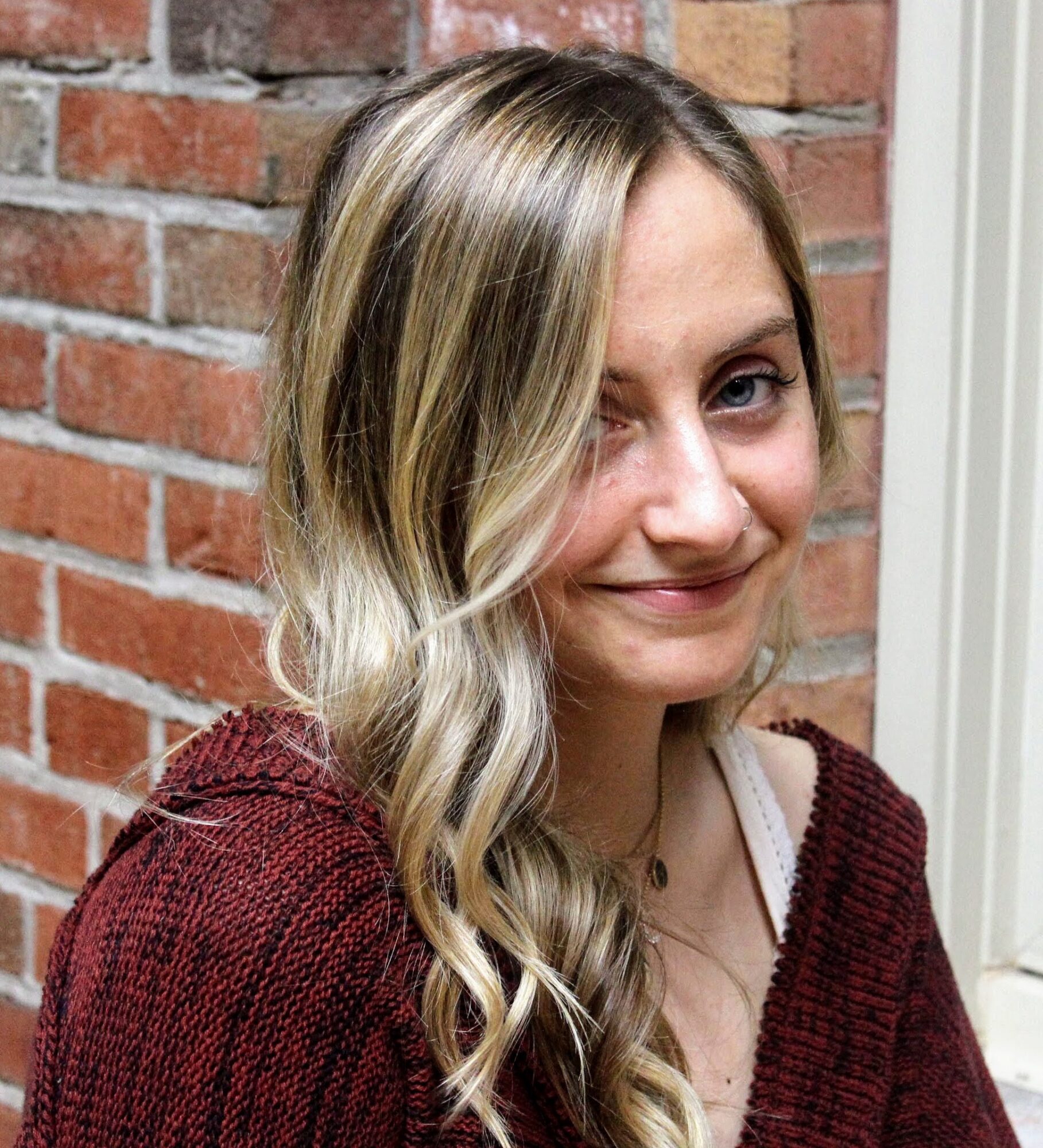
Time is ever elusive and fleeting. Life is so busy, work is so overwhelming, and to-do lists are far too long. When everything slows to a halt, we have no idea what to do with ourselves, how do we meaningfully fill excess time?
This is the question Daisy Leepson ’23 asked herself after she was stuck at home like many others through the spring and summer. Majoring in magazine journalism in the Newhouse School of Public Communications and Information Technology and Management in the School of Information Studies, she’s always driven herself to pursue her goals and filled her life to the brim with many passionate pursuits. On campus she writes for magazines, hosts a radio show, works as a research intern, sails, cooks, and takes leaderships roles in numerous organizations such as Slow Food and Survivor at Syracuse. She is the embodiment of a busy, joyful life.
When all those fulfilling components of her life suddenly vanished as COVID-19 began, Leepson searched for valuable work she could pour herself into over the summer. During the spring, she connected with Dr. Sophia Yen and her startup called Pandia Health, a non-profit focused on providing women easy access to birth control.
Long an advocate for women’s reproductive health, Leepson dove into working with the startup to broaden their audience and propel their growth to reach a younger, college-aged audience.
Pandia’s mission is to deliver birth control to anyone with internet access and a mailbox for free. Although it’s possible to request deliverable medications through pharmacies, the process is often confusing, time-consuming, and unreliable. Delivery is not discrete and medications often come in packages that proclaim to the world that they are a bottle of pills.
Pandia fixes these problems by through a one-time sign up that ensures birth control at your doorstep every month. They act as a third-party service between your pharmacy and you, eliminating any hassle of requesting refills or alterations. The birth control comes in confidential packages that look as if they could be from any retailer, but contain the medication as well as delightful little surprises such as makeup or candy to transform a mundane delivery into a monthly treat. The company is driven by its mission of making women’s healthcare affordable and accessible for everyone, but also hopes to add a little bit of joy into their customer’s lives in the meantime.
Leepson’s favorite Pandia project has been her effort in construction of a company outreach fund for those who may not be able to afford their birth control options. While Pandia’s services are completely free for anyone who has insurance, they often must charge small monthly fees of as low as $15 per pack or $20 for a consultation for a written prescription for individuals who don’t have insurance. Leepson hoped to eliminate that fee all together for those who may be financially burdened and created and raised money for a fund that contributes financially to individuals’ birth control or medical consultations.
“Women’s healthcare has always been a huge part of my life. My mother is an OB-GYN and I grew up in a family where talking about birth control is normal- but that’s not the case for many people. Many don’t have access to it.”
Leepson hopes to provide all women with healthcare access and make that access easier, and currently creates practical ways to make that happen. For her, entrepreneurship is a way to generate tangible impact.
“In entrepreneurship you have this sense of ‘my word and work really does matter.’ I have so much say and input here at Pandia that I never would have at an established company.”
Through her work with Pandia, Leepson is making a real difference in the fight for healthcare access. It’s unsurprising to see her impact with her focus of ambition and fierce passion in pursuit of her goals. Her story of working with Pandia through a global pandemic serves as a meaningful reminder that regardless of what happens in life, we have the choice to channel our energy into something that feeds our fire and creates a positive difference in the world around us.
Story by LaunchPad Global Fellow Claire Howard ’23; photo supplied